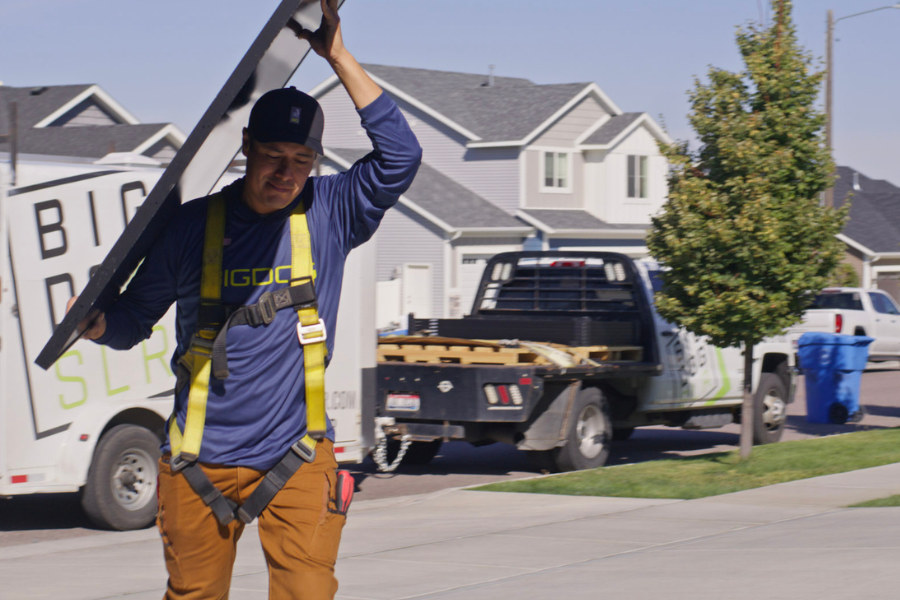In late 2012, hurricane Sandy tore through the streets of New Jersey leaving around 4.7 million people without power in over 15 states. Power outages, most not nearly this dramatic, are an occasional occurrence of life and have affected almost everyone. For some, it can be liberating to have control over their own power, which is exactly what solar energy systems can help you do. Solar panel systems convert the light from the sun into direct current (DC) electricity. That current is then housed in an inverter where it is converted into energy used for everyday appliances such as TV’s and refrigerators. This energy is called alternating current or AC electricity.

Different Types of Solar Systems
Grid-Tie Solar
A Grid-Tie System is linked to a power utility company, which is then connected to your household power. If the amount of energy produced is less than the amount of energy needed, electricity from the power utility company will make up the difference.
Battery Backup Solar
A grid-tie system with battery backup is similar to a regular grid-tie system, the difference being that if the power goes out with your electric company you have a battery backup that is still providing power to your home.
Tracking your Solar Energy
It is important you have a way to track the energy your solar panels produce. An easy way to do this is by using a solar energy meter. Once the energy is converted into alternating current, it can then be processed by a solar energy meter. This meter keeps track of how much energy is being produced as well as how much energy is being used. If less energy is being produced than is needed, a grid-tie system can be used to help make up the difference.
Related posts: Do You Still Pay for Electricity with Solar Panels? | 25 Key Terms to Know Before Going Solar

Why Should I Choose Solar Energy?
Using solar energy can offer you many benefits. Solar panel systems can offer you a great return on a wise investment. Electric bills can make up a large part of everyday living expenses. By using solar energy, your costs can be significantly reduced. Pollution reduction as well as renewable energy sources can help improve the environment and preserve the earth’s fossil fuel resources. Likewise, one of the most appealing aspects of solar power systems is your ability to have control over the energy being produced. Being completely self-sufficient is a source of independence and power, an even better kind than what solar panels can produce. Contact a Big Dog Solar specialist to learn more about energy independence.
Frequently Asked Questions
What is the difference between a grid-tie solar system and a battery backup solar system?
A grid-tie solar system is connected to your local power utility, providing electricity from the grid if your solar panels don’t produce enough energy. A battery backup solar system includes batteries that store energy so that you can continue to use solar power even if the grid goes down, offering added reliability during power outages.
How does a solar energy system convert sunlight into usable electricity?
Solar panels capture sunlight and convert it into direct current (DC) electricity. This DC electricity is then sent to an inverter, which transforms it into alternating current (AC) electricity used for everyday household appliances, such as TVs and refrigerators.
Why is it important to track the energy production of solar panels?
Tracking the energy production of solar panels is crucial to ensure that the system is performing efficiently. A solar energy meter helps monitor how much energy is being produced and used. If the production falls short of the energy needs, a grid-tie system can supplement the deficit.
What are the benefits of using solar energy?
Solar energy can significantly reduce electric bills, offer a great return on investment, and decrease reliance on fossil fuels, which helps reduce pollution. Additionally, solar systems provide greater control over energy production, contributing to energy independence and sustainability.




.png)








